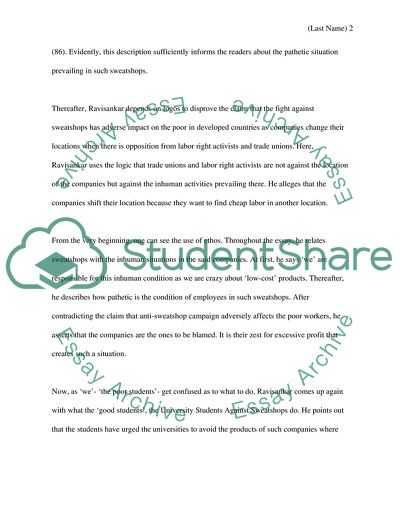Sweatshop Oppression by Rajeev Ravisankar: Rhetorical Analysis Essay. https://studentshare.org/social-science/1580881-rhetorical-analysis-of-sweatshop-oppression
Sweatshop Oppression by Rajeev Ravisankar: Rhetorical Analysis Essay. https://studentshare.org/social-science/1580881-rhetorical-analysis-of-sweatshop-oppression.


